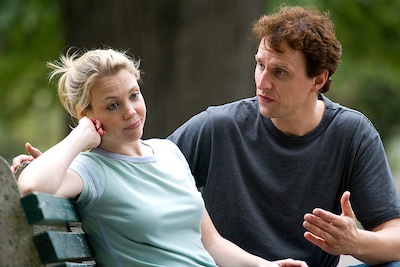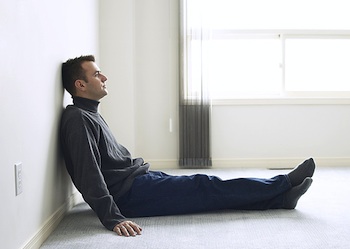Stay Informed
Popular Articles
- Hiatal Hernia: Hidden Cause of Chronic Illness
- Small Intestinal Bacterial Overgrowth (SIBO)
- Applied Lymphology: Unlocking the Secret to Pain Relief
- An Introduction to Constitutional Iridology
- The Low Down on Liver Detoxification
- An Energetic and Emotional Approach to Cancer
- Fat Facts
- Marrow in the Bones
- Blood Type and Nutrition
- Cardiac Herbs: Beyond Hawthorn
Quick Search
The School of Modern Herbal Medicine




Blame It On Hormones: The Biological Differences Between Men and Women
- 2/26/2008
- Categorized in: Emotional Healing
 Normally, I find it easy to write, but I've struggled with writing this article and not because I don't know what I want to say. Quite the contrary-I know exactly what I want to say. Unfortunately, want I want to say about men and women isn't very PC (politically correct) in modern society. I suppose it doesn't matter, since I've never been very PC anyway. (After all, I'm a MAC person and I think differently.1)
Normally, I find it easy to write, but I've struggled with writing this article and not because I don't know what I want to say. Quite the contrary-I know exactly what I want to say. Unfortunately, want I want to say about men and women isn't very PC (politically correct) in modern society. I suppose it doesn't matter, since I've never been very PC anyway. (After all, I'm a MAC person and I think differently.1)
The women's liberation movement made it PC to believe that all emotional and aptitude differences between men and women were a result of social conditioning. Thus, a woman can do anything a man can do equally well (and vice-versa). So, not only are women supposed to be able to be just as aggressive, career-oriented and tough as men, men are supposed to be gentle, sensitive and in touch with their feelings.
I believe that this belief has severely damaged relationships between the sexes. Divorce has skyrocketed, and many young people today (both males and females) are afraid of marriage. I have personally experienced the damaging effects of this belief in my own relationships.
What is Equality?
Many people don't seem to understand that equality has nothing to do with likeness. If things have to be the same (or even have the same potentials) in order to be equal, then issues of equality wouldn't exist. The issue of equality revolves around the idea of having equal respect for people in spite of their differences.
The more I have studied people, the more I have become aware that people have major inherent differences in the way they perceive the world, and not all of this is a result of social conditioning. If we do not understand these differences and take them into account in our interactions, we experience unnecessary friction and inequality.
For example, there are auditory learners, visual learners and kinesthetic learners. Each of these types of learners processes information differently. Because public education is geared primarily around auditory and visual learning, people who are kinesthetic learners are often judged negatively and labeled as either slow or ADHD. Equality in education would mean honoring these inherent differences without creating the labels that judge those with a different primary learning mode as being inferior or flawed.
Male and Female Differences
 My observation and study has also lead me to conclude that there are major differences in masculine and feminine energy that color the way males and females perceive reality. On occasion I have ventured to discuss these differences in one of my classes, but I can't get very far before I start to encounter resistance. It appears that the moment I suggest that feminine energy is one way and masculine energy is another way, people perceive my comments as sexist or as a put-down. (By the way, as long as students perceive the discussion to be “putting down” men, it is OK, but if it appears to be “putting down” women, they get upset.)
My observation and study has also lead me to conclude that there are major differences in masculine and feminine energy that color the way males and females perceive reality. On occasion I have ventured to discuss these differences in one of my classes, but I can't get very far before I start to encounter resistance. It appears that the moment I suggest that feminine energy is one way and masculine energy is another way, people perceive my comments as sexist or as a put-down. (By the way, as long as students perceive the discussion to be “putting down” men, it is OK, but if it appears to be “putting down” women, they get upset.)
However, I've never intended and do not now intend this discussion to be a “put down” of anyone. People only see these comments as negative or sexist because they are prejudiced against certain character traits. In other words, they have an emotional charge attached to words like passive or aggressive.
However, differences are not necessarily good or bad-they just are what they are! Does the fact that a tree uses carbon dioxide and eliminates oxygen make the tree inferior to a dog that inhales oxygen and exhales carbon dioxide? Of course not-without plants, animals cannot survive and without animals, plants cannot survive. Both are equally important, and it is the differences between them that allow them to live in a mutually beneficial arrangement. The same is true with people.
Acknowledging differences between the sexes does not make one sex superior to the other. In fact, it is exactly what allows the sexes to create a mutually beneficial relationship. If the different sexes possessed the same talents and abilities they would have nothing to contribute to each other and there would be no basis of sexual attraction. We are attracted to that which “fills in gaps” in our personality. In other words, we are attracted to people who possess skills and abilities we don't have and who need skills and abilities we possess.
This is the reason behind the well-known maxim, “opposites attract.” The sexes attract because their energies are opposite. We get into trouble because we wind up “judging” these opposite characteristics we were attracted to as “bad” in order to make ourselves feel “good.” In my opinion we will continue to see more relationships fail until we understand that these differences exist and that they are good. Equality between the sexes can only be achieved as we learn to honor and appreciate our differences.
Hormones are to Blame
 I'm now more willing to discuss the differences between male and female energy because I'm finally finding some scientific research to back me up. Science is discovering that hormones not only influence our physical characteristics, they also influence our thoughts and emotional responses. For example, I wrote an article in Nature's Field last year on the role of oxytocin in creating family bonding. In a similar manner, estrogen and testosterone not only account for the physical differences between the sexes, they also account for the mental and emotional differences. So, don't blame social conditioning -hormones are the culprit.
I'm now more willing to discuss the differences between male and female energy because I'm finally finding some scientific research to back me up. Science is discovering that hormones not only influence our physical characteristics, they also influence our thoughts and emotional responses. For example, I wrote an article in Nature's Field last year on the role of oxytocin in creating family bonding. In a similar manner, estrogen and testosterone not only account for the physical differences between the sexes, they also account for the mental and emotional differences. So, don't blame social conditioning -hormones are the culprit.
I feel very comfortable in calling traits programmed by estrogen “feminine” and traits programmed by testosterone “masculine.” I mean if estrogen isn't feminine and testosterone isn't masculine, what is? What complicates the picture is the fact that we all have both estrogen and testosterone in our bodies. So, we are all a blend of masculine and feminine energies. Again, there should be no judgment about that. We are who and what we are, and our unique blend of talents and abilities makes us able to do things that other people who do not have that blend of talents and abilities could not do.
Masculine and feminine behavior traits are programmed in the brain in the womb. During fetal development, if the brain receives more testosterone, it will be programmed with certain masculine traits. More estrogen during these same stages of development will program the brain with more feminine traits. So, the “tom boy” girl or the “mama's boy” male child may simply have had a slightly different blend of hormones during development.
What further complicates this picture is the fluctuations in hormone levels we experience during our life. The surge of hormones during puberty is one major hormonal shift that we all recognize. However, there is a second major hormonal shift that takes place in midlife. For women this is called menopause, but men undergo a similar shift that has traditionally been called a midlife crisis but is increasingly being referred to as andropause.
During this secondary life-shift women's estrogen-levels are programmed to drop and testosterone becomes more dominant. Men have a similar shift in which testosterone levels fall and estrogen becomes more dominant. This is why many women start a career and become more assertive at this stage of life, while many men want to stay at home more, gardening or tending grandchildren. In other words, we are programmed for a partial reversal of roles after the childbearing years are passed. Nature is obviously very fair, but because we do not understand this secondary life transition, we have both men and women panicking and resisting this important life transition.
Why Men Don't Listen
 Grabbed your attention, ladies, didn't I? Actually, I borrowed that heading from the title of a book I recently read. The full title was: Why Men Don't Listen And Women Can't Read Maps. Is anybody insulted yet? (When I mentioned this book at a recent class, one of the female students piped up that the book had to be written by a man. Obviously she thought the part about reading maps was sexist. Interesting that nobody objected to the “men don't listen” part.)
Grabbed your attention, ladies, didn't I? Actually, I borrowed that heading from the title of a book I recently read. The full title was: Why Men Don't Listen And Women Can't Read Maps. Is anybody insulted yet? (When I mentioned this book at a recent class, one of the female students piped up that the book had to be written by a man. Obviously she thought the part about reading maps was sexist. Interesting that nobody objected to the “men don't listen” part.)
The book, fortunately, was written by both a man and a woman-a married couple, in fact-who spent several years traveling the world and researching this topic. The authors, Barbara and Allen Pease, claim the information has really helped their marriage because they better understand the differences in the way they perceive the world.
So, let's examine a few of the differences estrogen and testosterone program into our brains. Remember that it is entirely possible for a female brain to have a lot of masculine wiring and for a male brain to have a lot of female wiring, so we are talking generalities here, not about specific individuals. If you can keep this in mind, you can avoid being offended unnecessarily. Besides, it's high time we men got to use the hormonal excuse for some of our behaviors. (That's equality, folks!)
Hunters and Gatherers
 In traditional societies, men were hunters, and generally speaking, testosterone programs the body and brain for hunting. Hunting requires the ability to select a target and pursue it without distraction. Men had to leave the village, find the game, kill it, and return again. Men also had to calculate size, distance, speed, direction and other factors necessary to aim at and hit a target. Testosterone programs the brain with skills for this type of activity.
In traditional societies, men were hunters, and generally speaking, testosterone programs the body and brain for hunting. Hunting requires the ability to select a target and pursue it without distraction. Men had to leave the village, find the game, kill it, and return again. Men also had to calculate size, distance, speed, direction and other factors necessary to aim at and hit a target. Testosterone programs the brain with skills for this type of activity.
In these same societies, women were the gatherers. They not only tended the children, they had to be alert to the possibilities of predators or other dangers to the village. They also gathered useful materials from their surroundings to make life comfortable-a kind of nest-building instinct. Estrogen programs the brain with skills needed for these types of activities.
Here are some specific examples: Estrogen programs the brain to have wider peripheral vision, while testosterone programs a kind of tunnel vision. As a result, men tend to focus on a goal and move towards it, oblivious to other things going on around them. In contrast, women see more details and obtain more subtle information about their environment. They are much more aware of their surroundings and pick up subtle clues that men simply don't perceive. This explains why, generally speaking, men can navigate their way around a strange city but can't see their socks in the drawer.
Another hormonally programmed difference involves skin sensitivity. Women's skin is more sensitive to touch than a man's skin. In fact, women as a whole are ten times more sensitive to pressure on the skin than men. Here again, a women's senses are more attuned to the environment than a man's. Pursuing a goal (hunting) requires one not to be distracted by unnecessary sensations or situations, so testosterone programs a “thick-skinned” nature. In fact, the most “thick-skinned” woman is about as sensitive as the most “thin-skinned” man.
Women often interpret this lack of sensory sensitivity as a lack of emotional commitment on the part of males. They assume that the male is picking senses or “sees” the same subtle clues they are seeing and is simply ignoring them, i.e., being insensitive. The truth is, the testosterone-programmed male doesn't have a clue as to what the estrogen-programmed female is talking about because his sensory systems aren't “fine-tuned” enough to pick those things up. Give him a “bear” to kill (i.e., some problem to solve) and he'll probably gladly do it to prove his love and devotion, but expect him to pick up on subtle emotional changes and he'll feel frustrated and unsuccessful because it is a problem he can't solve. His thick skin and tunnel vision just aren't equipped to cope with this kind of task.
Communication Skills
 Estrogen also programs the brain for better speech and communication skills. If you are going to get along in the village you have to be able to communicate. Testosterone-programmed brains are programmed for brief, get to the point, no frills communication. In other words, solve the problem and move on. Estrogen-programmed brains tend to love more verbal socializing and indirect, feeling-oriented communication.
Estrogen also programs the brain for better speech and communication skills. If you are going to get along in the village you have to be able to communicate. Testosterone-programmed brains are programmed for brief, get to the point, no frills communication. In other words, solve the problem and move on. Estrogen-programmed brains tend to love more verbal socializing and indirect, feeling-oriented communication.
An estrogen-dominant brain, observing that the garbage can is full and needs to be taken out might say, “The garbage can is pretty full.” A testosterone-dominant brain will acknowledge, “Yes, it is pretty full,” but fail to recognize the “hint” to take out the garbage. A more direct, “Please take out the garbage,” would probably elicit an immediate response because it is a form of communication testosterone-programmed brains can process.
On the other hand, estrogen-dominant women tend to perceive direct communication from males as “orders” and feel their ability to recognize the subtle messages has been insulted. So, “Gosh, I'm hungry” is likely to exhibit a better response from an estrogen-dominant brain than “Would you fix me something to eat?”
By now, you should have a better understanding of why women (as a group) are better listeners and communicators than men. There are lots of other differences, but let's look at one more-the skill area where testosterone-programmed brains out-perform estrogen-programmed brains-spatial reasoning ability. That's the skill involved at reading maps.
In tests involving spatial skills the very best females score similarly to some of the worst males. (Similar to the skin sensitivity thing, except this time the tables are reversed.) In fact, in subject areas that involve spatial skills women seldom even study them because their estrogen-programmed brains don't enjoy them. This is why all the occupations requiring spatial skills (such as engineers, race car drivers, flight engineers, pilots and air traffic controllers) are dominated by males. This has nothing to do with male tyranny over women. It has to do with how hormones have programmed our brains.
Differences are Good
 You can read more about these differences in the book. I found it very enlightening, and it explained a lot of my frustration over things women have expected me to do in my life when I just couldn't understand what they were talking about. It also helps me see areas where I have placed unreasonable expectations on women.
You can read more about these differences in the book. I found it very enlightening, and it explained a lot of my frustration over things women have expected me to do in my life when I just couldn't understand what they were talking about. It also helps me see areas where I have placed unreasonable expectations on women.
As I said, we have to stop judging differences to mean inequality. We all have innate abilities, and every single one of us is a genius at something. We just don't excel in the same areas. This is a good thing. My father used to say, “wouldn't it be boring if everyone in the world were just like you?” It is our differences that make life exciting and interesting.
It is also by understanding our own strengths and weaknesses that we can learn to cooperate rather than compete. I appreciate people who possess talents I don't possess and feel no need to compete with them. Rather, I like to find people whose talents complement mine-that is people who are strong where I am weak and vice-versa. I think that relationships between the sexes work in a similar way.
Yin and Yang (Water and Fire)
I prefer to use the Oriental terms “yin” and “yang” to describe these masculine and feminine energies. Yin refers to the feminine energy, while yang refers to the masculine energy. So, there are also men who are more “yin” and women who are more “yang.”
In Oriental philosophy yin is associated with water and yang with fire. I like those analogies, as the forces of fire and water are inherently different, but equal. Water is more passive and fire is more aggressive, but they are equal forces. Fire may evaporate water, but water can put out the fire. That metaphor does much more for me than the Martian Men and Venusian Women analogy popularized by author John Gray.
Masculine energy is inherently more aggressive and goal-oriented than feminine energy. Just look at the influence of testosterone on males in the animal kingdom as they fight with each other-two bucks or rams bashing each other's heads in ritual combat to determine who will be the alpha male. That's one kind of power, but then one has to look at what the males are fighting over. Females, of course! That's another kind of power, isn't it.
Feminine Power
 So, you can't tell me that feminine (yin or water) energy is powerless against masculine (yang or fire) energy. As a group, males may be physically larger and more muscularly powerful than women, but women are much more emotionally powerful than men. Just watch a daughter wrap her powerful father around her little finger and you'll understand what I mean.
So, you can't tell me that feminine (yin or water) energy is powerless against masculine (yang or fire) energy. As a group, males may be physically larger and more muscularly powerful than women, but women are much more emotionally powerful than men. Just watch a daughter wrap her powerful father around her little finger and you'll understand what I mean.
To assert that the only way a female can have power with males is to adopt more “yang” energy, i.e., become more aggressive, is to assert that feminine or yin energy was weaker in the first place. This isn't so. Feminine energy holds a power equal to, but different than, the power of masculine energy. In his essay on Compensation, the famous American philosopher Ralph Waldo Emerson claims it is impossible for the Universe to be unfair. Every strength covers an underlying weakness, and within every apparent weakness lies a hidden strength. Females never have been and never will be powerless against males.
Years ago, my Father gave me a book of poetry and sayings translated from the Chinese and illustrated with contemporary photographs. It is entitled Of All Things Most Yielding.2 I have always appreciated this book because it has taught me much about the power of the yin or feminine energy, and being one of those males who has a little stronger “yin” energy than most males I appreciate that understanding. One of the many beautiful passages in this book is the following:
Of all the elements, the Sage should take Water as his preceptor.
Water is yielding, but all conquering. Water extinguishes Fire,
Or, finding itself likely to be defeated, escapes as steam and re-forms….
…Water conquers by yielding; it never attacks but always wins the last battle.
The Sage who makes himself as Water is distinguished for his humility;
He embraces passivity, acts from non-action and conquers the world.-Tao Cheng
11th Century AD
The energy of water (which represents the yin or passive feminine energy) is very powerful, but it is not the power of aggression, it is the power of nurturing. It is the power embodied in the proverb, “A soft answer turneth away wrath” or “Turn the other cheek.” If this is being done out of fear, then, yes, that is weakness. When one could lash back, but knows how to return good for evil, that is real strength. No one should ever cower to or tolerate abuse, but we can also stand up to abuse without becoming abusive.
The Issue of Abuse
 What about men who abuse women? The irony is that men who abuse women are insecure and afraid of the power women hold over them. That is why they seek to suppress and dominate women-they are afraid of femininity. Men who are secure and confident in their masculinity are not abusive, in fact, they are usually quite protective of women. It is men who feel powerless who are most likely to become violent.
What about men who abuse women? The irony is that men who abuse women are insecure and afraid of the power women hold over them. That is why they seek to suppress and dominate women-they are afraid of femininity. Men who are secure and confident in their masculinity are not abusive, in fact, they are usually quite protective of women. It is men who feel powerless who are most likely to become violent.
It is important to separate the concept of aggression (i.e., the ability to pursue goals, meet challenges, defend the things a person loves, etc.) from the concept of violence. This is where we need to get our thinking clear and avoid labeling qualities of one sex as good or bad. Testosterone does make a person more aggressive, but aggressiveness does not equate with violence or abuse. Violence (physical or emotional abuse) is equally wrong no matter what the sex of the perpetrator, and women are just as capable of being violent and abusive as men are.
That statement may surprise you, but the statistics that suggest that men are the primary culprits in domestic violence are skewed by reporting procedures-women report domestic violence more readily than men. Studies which include incidents of domestic violence that are not reported to the police indicate that 51% of the cases of domestic violence involve a man assaulting a woman and 49% of the cases involve the woman assaulting the man. In one study, wives reported that they were more likely to assault their husband than he was to assault them. Men simply don't report getting assaulted by their wives because it would make them look weak or unmanly.
Emotional Healing for Men
So, I realize I've rambled on here for a while. It is time to get to the point. I have long desired to help people heal emotionally as well as physically. Until recently I had a lot of success helping women, but very limited success helping men. Men have emotional issues, too, and they need healing in this area as much as women.
Some women don't think this is true because the testosterone-programmed brain deals differently with emotions than the estrogen-programmed brain. The estrogen-programmed brain integrates feeling and speech centers, making it very easy for women to identify and communicate feelings. Testosterone-programming limits the connections, making it much more difficult for men to communicate what they feel. Men are programmed to take action on feelings, not talk about them. In other words, men have feelings, they just don't verbally express them very often; they act on them instead.
 When men do express feelings, their responses are very raw and can be frightening to women. So men often try to work out their feelings in private. I've been part of a men's group and seen men express their feelings and I guarantee we have them, ladies.
When men do express feelings, their responses are very raw and can be frightening to women. So men often try to work out their feelings in private. I've been part of a men's group and seen men express their feelings and I guarantee we have them, ladies.
One also needs to recognize that testosterone-programming creates a different set of emotional needs. The testosterone powered male seeks admiration and respect more than he seeks love and affection. Most men feel loved and valuable when they feel respected and admired for their achievements, especially by a female. Healthy males have an innate desire to please females and when they perform a task which a female appreciates, you can usually see their faces light up with pleasure. Let's face it, the bottom line is most males secretly want to be heroes.
Men are actually far more sensitive to criticism of their performance than one would think, especially if that criticism comes from a female they care about. Because men tend to internalize (rather than externalize or express) their emotions, many women are completely unaware of how emotionally devastating criticism can be for a male. Male ego or self-esteem is based on a man's feeling that he can achieve something worthwhile (i.e., successfully complete the “hunt”).
Again, if a male is extremely insecure, he may express his hurt via anger or abuse. More emotionally mature and secure males tend to emotionally withdraw. Although research shows that men and women suffer equally from depression, men are less likely to seek help for it. That may partially explain why suicide rates for men are alarmingly higher than suicide rates for women.
The Problem of Male Suicide
 This is a serious problem for males and the problem is growing. In fact, the rate is climbing the highest among teenage boys, with the suicide rate for adolescent boys rising three times higher than the rate for girls of the same age. Furthermore, the older a male gets, the more likely he is to commit suicide.
This is a serious problem for males and the problem is growing. In fact, the rate is climbing the highest among teenage boys, with the suicide rate for adolescent boys rising three times higher than the rate for girls of the same age. Furthermore, the older a male gets, the more likely he is to commit suicide.
Below age nine, suicide rates are equal. In early teens, ages 10-14, the suicide rate for boys is twice that of girls. The second half of teenage years, 15-19, the rate is four times as high. From ages 20-24 the rate is six times higher. This trend continues until age 85, at which suicide rates for men are 13 times higher than rates for women of the same age. Interestingly, 91% of men committing suicide are white. They also tend to be well-educated and at least middle class.
The factors that contribute to male suicide reveal a lot about the emotional needs of men. One of these is unemployment. Unemployed men currently commit suicide at twice the rate of employed men. In the middle of the Great Depression, men were 650 percent more likely to commit suicide than women. Employment status makes no difference in suicide rates for women.
So, we can see how a testosterone-programmed brain bases its sense of self-worth on performance-the ability to “bring home the bacon.” We can't seem to totally escape that cave-man hunter wiring in our brain, can we?
The other key factor that puts a man at risk of suicide is loss of a loved one. Men are more likely to commit suicide after a divorce or the death of their spouse. In fact, a husband whose wife dies is ten times more likely to commit suicide than a wife whose husband dies. That's odd, considering men are supposed to be the sex that feels things less deeply, isn't it? What it shows, though, is that men also derive much of their sense of self-worth from their ability to please the female and win her respect and admiration. When a male is unable to do so, he often feels worthless. I think this also demonstrates what I mean when I say that, in general, women are emotionally stronger than males.
Of course, part of the problem is that men don't understand or appreciate women's needs. Here again, the lack of understanding about our differences comes into play. If we assert that the sexes don't have these differences, then a man is likely to be confused when a female reacts in a way he can't understand. He needs to understand how a woman is wired differently so he knows how to win her respect and admiration.
Here's a quote from Why Men Don't Listen and Women Can't Read Maps that summarizes this quite nicely.
Why Men and Women Leave Each Other
A man's biological urge is to provide for a woman, and her appreciation of his efforts confirms his success. If she is happy, he feels fulfilled. If she is not happy, he feels that he is a failure because he believes he can't provide enough. Men constantly say to their friends, “I can never make her happy,” and this can be sufficient motivation for a man to leave a relationship for another woman who seems happy with what he can provide.
A woman leaves a man not because she is unhappy with what he can provide, but because she is emotionally unfulfilled. She wants love, romance and conversation. He needs to be told by a woman that he is successful at what he does and that what he can provide is fine. But a man needs to be romantic, and most of all, listen when a woman talks, without offering solutions.
I could go on and on about this topic, because I've barely scratched the surface, but I'm running out of space. If you are interested in understanding how hormones color the way we perceive the world and create the differences in the sexes, I suggest that you read some of the books listed in my Suggested Reading list below.
Finally, if you feel offended by any of my politically-incorrect (i.e., non-PC) information, blame it on my MAC and my lack of Windows to help me see clearly.1
Suggested Reading
Why Men Don't Listen and Women Can't Read Maps and Why Men Don't Have a Clue and Women Always Need More Shoes by Barbara and Allen Pease
Getting to “I Do” and Staying Married and Loving It by Dr. Patricia Allen and Sandra Harmon
Why Men Are the Way They Are, The Myth of Male Power and Women Can't Hear What Men Don't Say by Warren Farrell, Ph.D.
Winona's Web by Priscilla Cogan (This is a novel, but it weaves some great Native American philosophy about men and women into the story.)
His Needs, Her Needs by Willard F. Harley, Jr.
Self-Made Man by Norah Vincent
The Proper Care and Feeding of Husbands by Laura Schlessinger
The Enchantment of Opposites by Patricia Huntington Taylor
Footnotes
1In case some of you didn't get the joke, besides standing for Politically Correct, PC also stands for Personal Computers. We use MAC computers at Tree of Light Publishing, not Windows compatible PCs.
2Published by Ballantine Books: New York and Friends of the Earth, Copyright by Friends of the Earth.
